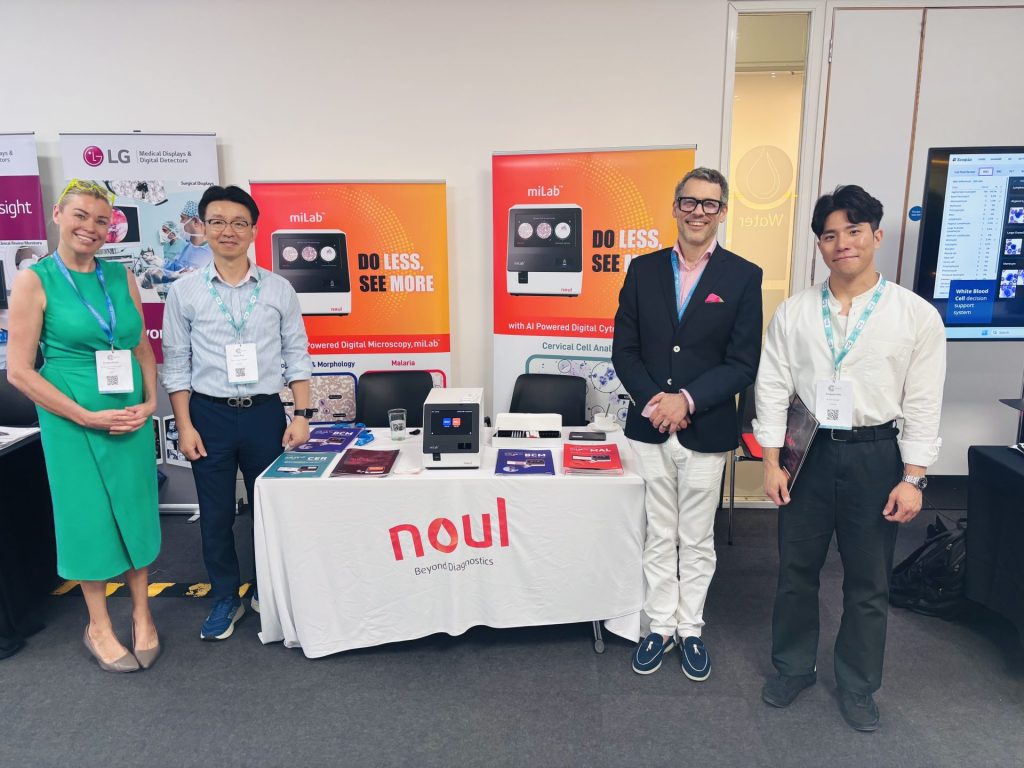
Source: noul
On July 1, 2025, NOUL participated in the NHS Pathology Conference: Improving NHS Diagnostics, held in London, UK. Following its first appearance at the NHS Conference in Manchester this past February, NOUL returned to the event in response to growing interest in digital pathology within the NHS. This year’s conference, themed “Digitalising Diagnostic Systems and Harnessing AI-Powered Tools,” brought together key stakeholders across the healthcare ecosystem. NOUL showcased its AI-powered diagnostic automation platform, miLab™, which drew significant attention from industry leaders.
The NHS is currently facing a range of challenges—including rising diagnostic demand, complex infrastructure operations, and the need for quality standardization. As a potential solution, NOUL introduced miLab™ as a decentralized diagnostic platform designed to address these systemic issues. During the conference, NOUL delivered a 20-minute main session presentation, enhancing its visibility and credibility as a global healthcare innovator. The company also hosted an exhibition booth, facilitating valuable networking with various industry stakeholders, gathering expert feedback, and gaining market insights—making it a highly meaningful and productive engagement.
NHS Conference as a Strategic Healthcare Platform
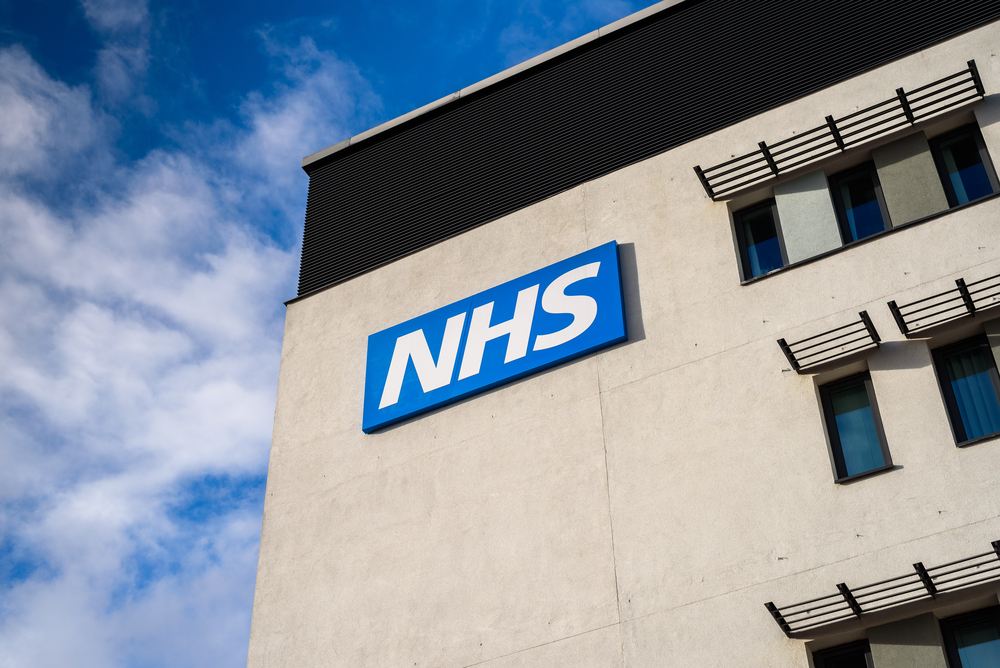
Source: Marbury / Shutterstock
NHS Conference is an official event hosted by the UK’s National Health Service (NHS), bringing together a wide range of healthcare stakeholders—including NHS officials, policymakers, clinical leaders, and healthtech companies—to engage in in-depth discussions on key healthcare challenges. Recent conferences have focused on themes such as the adoption of innovative medical technologies and diagnostic solutions, including pathology and AI, strategies for improving patient care and operational efficiency, and building a data-driven, digital healthcare system.
This conference serves as a platform for the NHS to share its strategic vision and technological needs with external stakeholders, while also gathering insights and perspectives from across the industry. Attendees gain a deeper understanding of the UK diagnostic landscape, including relevant policies, regulatory frameworks, and operational directions. For companies, the event offers a valuable opportunity to showcase cutting-edge medical technologies and explore their potential adoption within the NHS. As such, the NHS Conference is not merely a diagnostic technology exhibition—it is an official platform designed to advance innovation and collaboration across the UK healthcare system.
Preventative, Digital, Decentralized: The NHS’s New DIagnostic Era
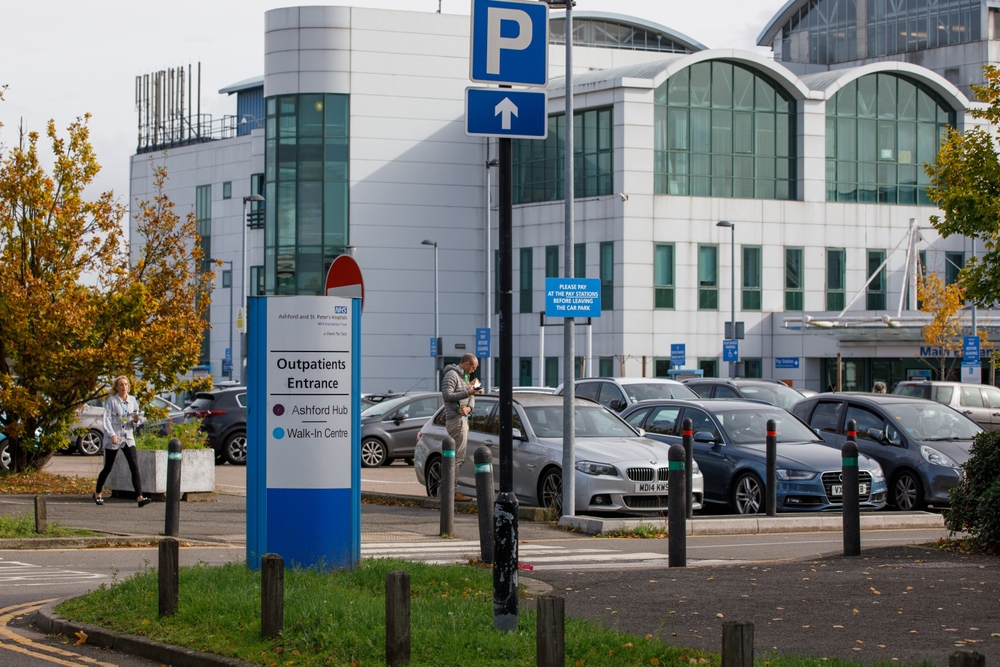
Source: Paan Lily / Shutterstock
The NHS is currently facing several critical challenges, including aging infrastructure, workforce shortages, and declining patient trust. In response, the UK has established a 10-year strategic plan centered around preventative care, community-based healthcare, and the integration of digital and AI technologies. This roadmap includes initiatives to expand the healthcare workforce, strengthen local public health systems, and scale digital health solutions.
To further support this transition, the NHS launched the NHS AI Lab, aiming to introduce AI-driven innovations in a safe and ethical manner, with guidelines currently in development for the use of AI tools in clinical settings.
At the recent NHS Pathology Conference, the adoption of digital pathology and AI technologies emerged as a major topic of discussion. AI is increasingly being implemented to improve patient care quality and enhance hospital operational efficiency. Notably, AI systems are being used to detect potential patient safety issues at an early stage—helping to prevent medical errors before they occur. Additionally, the NHS recently trialed an AI-powered breast cancer screening program involving around 700,000 participants, signaling a strong commitment to advancing diagnostic efficiency through innovation.
Industry Response to miLab™ at the NHS Conference
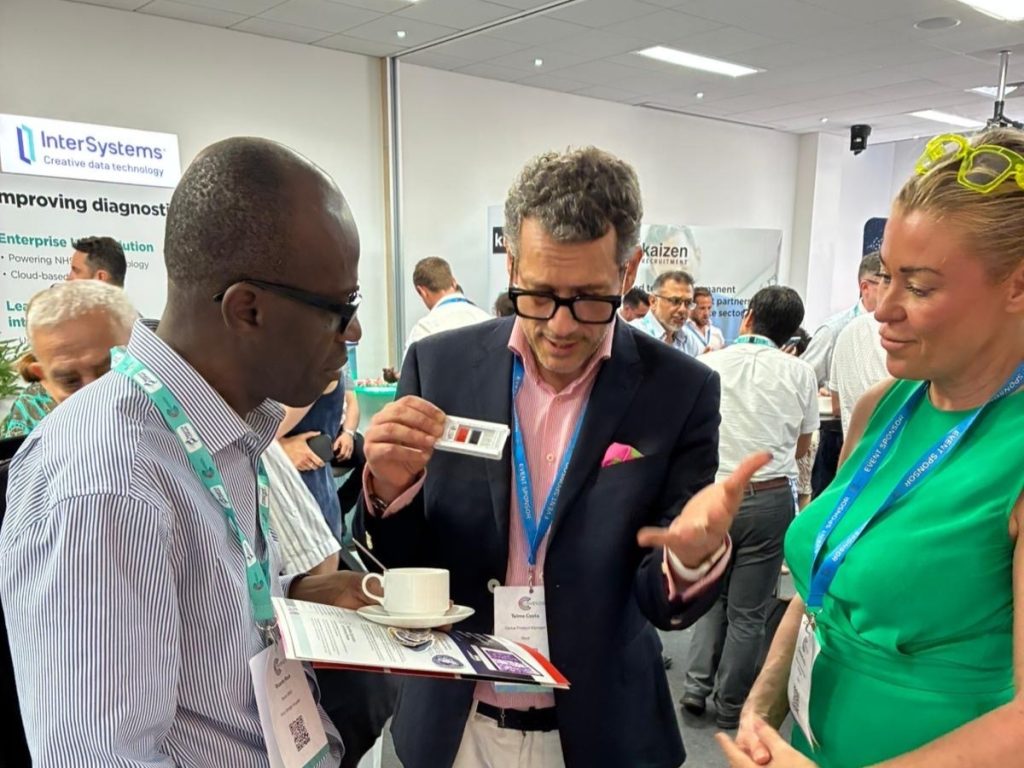
Source: noul
As previously noted, the NHS is actively embracing AI technologies to improve diagnostic efficiency. Reflecting this trend, many AI-powered diagnostic solutions were showcased at the recent NHS Conference. Among them, NOUL’s miLab™ received particularly positive feedback from industry stakeholders, who were especially drawn to its ability to automate the entire diagnostic process using advanced technologies.
miLab™ is an integrated diagnostic automation platform that supports malaria detection, CBC & blood morphology, and cervical cell screening. By leveraging NOUL’s proprietary solid-based staining technology—Next Generation Staining & Immunostaining (NGSI)—the platform simplifies the workflow by enabling automated smearing and staining within a single cartridge. In addition, its on-device AI ensures consistent and accurate diagnostic results through real-time analysis.
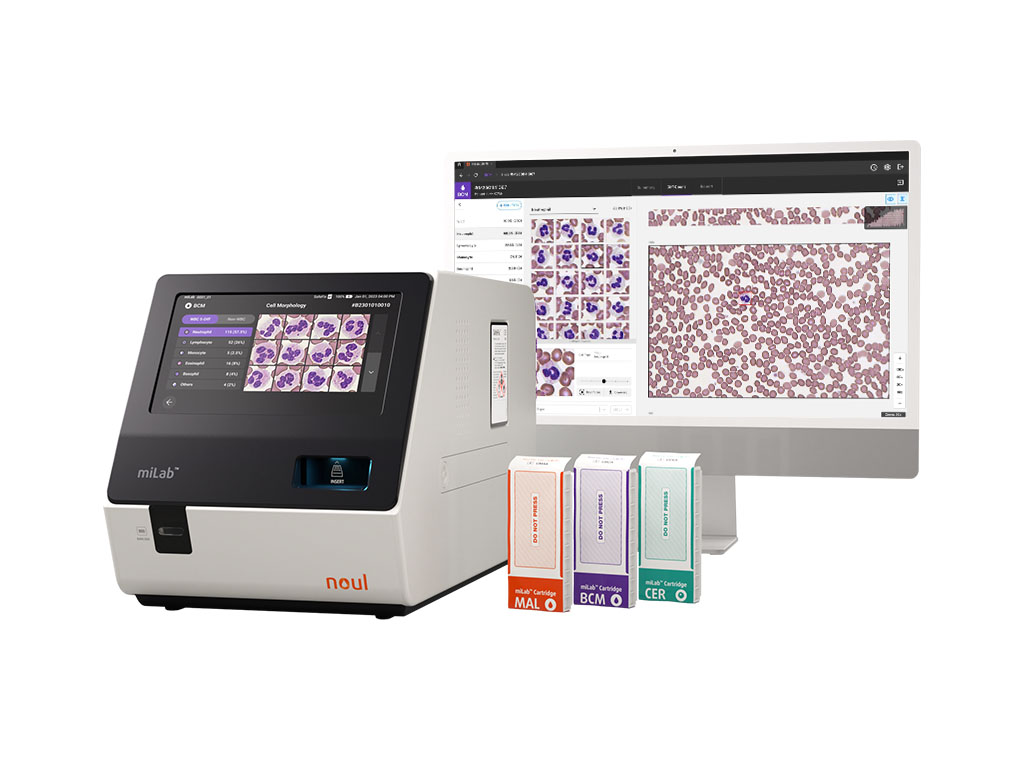
Source: noul
One of miLab™’s key strengths is its portability. Designed as a compact device capable of performing the entire diagnostic process with a single cartridge, it requires minimal infrastructure and is well-suited for point-of-care (POC) settings. This makes miLab™ not only a tool for improving diagnostic efficiency, but also a solution that enhances clinical reliability by delivering accurate and consistent results—while optimizing both manpower and cost.
At the conference, many participants who experienced miLab™ firsthand expressed strong interest in using the platform for pilot studies. Several even proposed visiting their labs to explore potential collaborations. Through this event, NOUL was able to connect with key stakeholders, foster new partnerships, and identify valuable business opportunities. Building on the positive momentum from the NHS Conference, NOUL has also confirmed its participation in the upcoming IBMS this September, further strengthening its brand visibility and market presence in the UK.
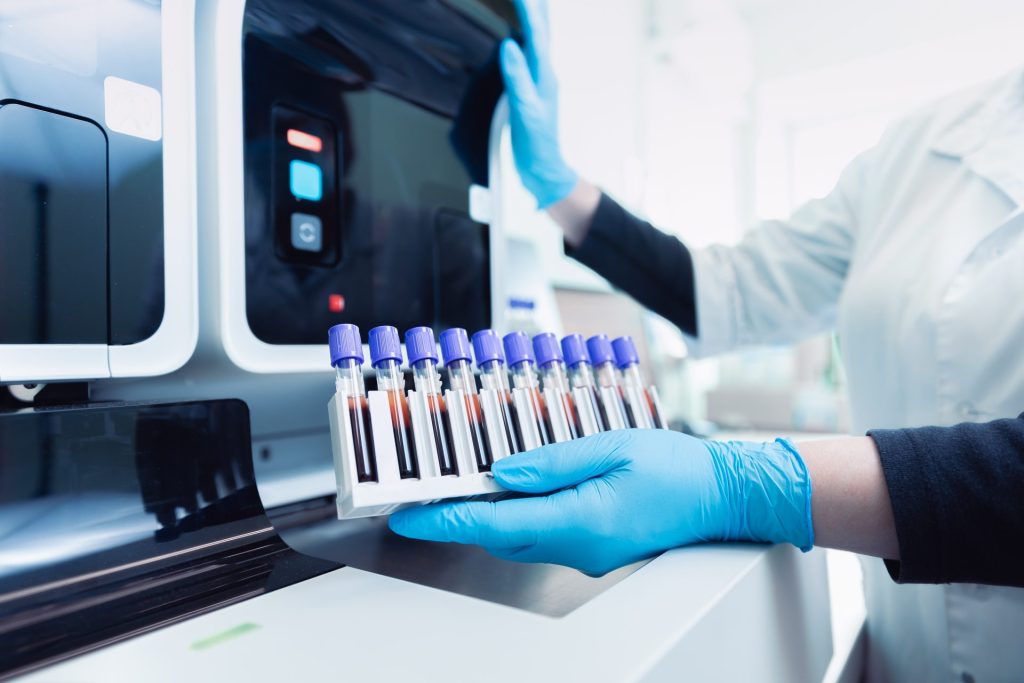
Source: Shutterstock
The demand for miLab™ identified during the NHS Conference highlighted its potential to drive meaningful changes within the UK diagnostic landscape. As a decentralized diagnostic platform, miLab™ offers a practical alternative to traditional, hospital-centered systems—enabling the creation of more efficient diagnostic networks in terms of both manpower and cost. Its ability to centrally manage test images and AI-analyzed data via network integration supports streamlined data aggregation and analysis. Additionally, the compact design of the device allows for operation without complex infrastructure, making it highly adaptable for use in community hospitals, outpatient clinics, and other decentralized healthcare settings. This aligns well with the NHS’s strategy to expand community-based diagnostics and advance remote and virtual care.
Bringing AI-Powered Diagnostics to Europe
NOUL’s miLab™ has obtained CE certification and is actively expanding its presence in Europe, establishing local representatives in key markets such as the UK, Germany, and France. In addition to participating in the NHS Conference, miLab™ has showcased its capabilities at major events like ICC 2025 and EuroMedLab, and is set to exhibit at MEDICA 2025, Europe’s largest medical device trade fair.
In December 2024, NOUL secured a supply agreement with Limbach Gruppe, Germany’s largest diagnostic laboratory chain. Since then, miLab™ has been undergoing performance evaluations across various laboratories, signaling its growing adoption throughout Europe.
Driven by a mission to improve healthcare accessibility and deliver high-quality diagnostic services to more people, miLab™ is pursuing global expansion beyond Europe, targeting markets in Africa, Asia, and beyond.
If you’re curious about how this AI-powered diagnostic automation platform could reshape the global healthcare diagnostics landscape, you can learn more through the link.

